What People are Commenting
Genocide & Emotion in Faith
Traditional Catholicism
Hi,
Just reading some information on Josef Jungmann.
I want to know where you stand with Traditional Catholics.
Can you tell me a little bit more about you?
Thanks,
E.B.
TIA responds:
Hello E.B.,
Since we do not have any notion on what you know about us, we cannot evaluate what is the "little more" you want us to tell you.
So, we suggest you take a little more time to browse our website, so that you may form your own opinion about TIA.
Cordially,
TIA correspondence desk
Just reading some information on Josef Jungmann.
I want to know where you stand with Traditional Catholics.
Can you tell me a little bit more about you?
Thanks,
E.B.
______________________
TIA responds:
Hello E.B.,
Since we do not have any notion on what you know about us, we cannot evaluate what is the "little more" you want us to tell you.
So, we suggest you take a little more time to browse our website, so that you may form your own opinion about TIA.
Cordially,
TIA correspondence desk
______________________
Needed Apostolate
TIA,
Just wanted to say thank you for the beautiful items sent and for your desperately needed apostolate;
Laudetur Jesus Christus et Maria Immaculata!
May Our Lady bless you,
Ad Jesum per Mariam!
F.M.
Just wanted to say thank you for the beautiful items sent and for your desperately needed apostolate;
Laudetur Jesus Christus et Maria Immaculata!
May Our Lady bless you,
Ad Jesum per Mariam!
F.M.
______________________
Branches of Evil
God bless TIA!
Re: McElroy: No religious exemptions for covid vaccine
Satan is working overtime. The pope does not protect the Church, The president does not protect the citizens, Doctors lie to the sick, the world is fragmenting. Thank God we have our Blessed Mother. We will survive, but only after much unnecessary suffering from the enemies of God.
It is disheartening to hear a bishop spout ignorance on every possible level, like trying to peel an onion where every layer is rotted. As Thoreau said: “There are a thousand hacking at the branches of evil, to one who is hacking at the root of good.” Such as TIA?
Ah yes, the “common good”, considering that Paul VI told us that “we now have the Cult of Man.” Forget the Divine Cultus, the cult of Christ. Let us go to the U.N., and tell them that they are the last hope for world peace. Ah, but peace that the world gives…
Our Successor to the Apostles told Saint Mary’s in Escondido, and Saint Margaret’s in Oceanside, both Novus Ordo parishes - each of which had ONE True Mass on Sundays - to find another place. Just wait until they ask for a priest…!
I pray that you are in the best of health, continuing to jab those who want to jab us.
As Socrates said: “You may kill me, but you cannot hurt me.”
In Maria,
J.S., Ph.D
Re: McElroy: No religious exemptions for covid vaccine
Satan is working overtime. The pope does not protect the Church, The president does not protect the citizens, Doctors lie to the sick, the world is fragmenting. Thank God we have our Blessed Mother. We will survive, but only after much unnecessary suffering from the enemies of God.
It is disheartening to hear a bishop spout ignorance on every possible level, like trying to peel an onion where every layer is rotted. As Thoreau said: “There are a thousand hacking at the branches of evil, to one who is hacking at the root of good.” Such as TIA?
Ah yes, the “common good”, considering that Paul VI told us that “we now have the Cult of Man.” Forget the Divine Cultus, the cult of Christ. Let us go to the U.N., and tell them that they are the last hope for world peace. Ah, but peace that the world gives…
Our Successor to the Apostles told Saint Mary’s in Escondido, and Saint Margaret’s in Oceanside, both Novus Ordo parishes - each of which had ONE True Mass on Sundays - to find another place. Just wait until they ask for a priest…!
I pray that you are in the best of health, continuing to jab those who want to jab us.
As Socrates said: “You may kill me, but you cannot hurt me.”
In Maria,
J.S., Ph.D
______________________
Obedient Citizen
TIA,
Below is pictured our happy future if we will be obedient citizens and take all the vaccines our benefactors Bill Gates & Tony Fauci order us to take.
P.M.
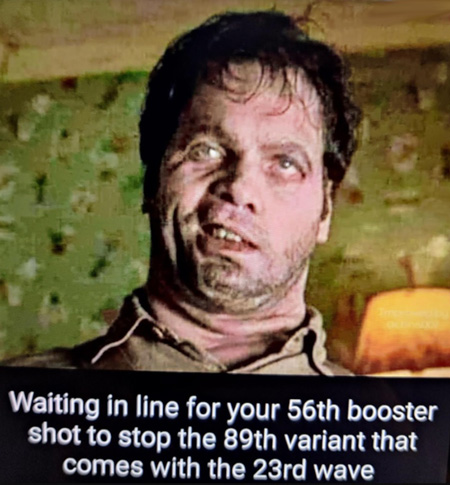
Below is pictured our happy future if we will be obedient citizens and take all the vaccines our benefactors Bill Gates & Tony Fauci order us to take.
P.M.

______________________
Ashes to Ashes, Dust to Stone
Dear TIA,
Since the Catholic authorities apostatized, Paganism is taking over everything…
Read about this new trend.
L.M.

You can now turn your loved one’s ashes to stone and in a good way. Not in a Medusa kind of way.
A startup called Parting Stone takes cremated ashes and compresses them into solid stone. The size of the stone can vary from pebbles to larger rocks. A typical human body can be turned into between 40 and 60 stones of various colors. The colors are the result of the body composition of the deceased. The company says that the bodies of people who were on certain medications or had certain diets will produce a unique color.
Customers of this “death tech” cherish the stones in a garden or share them with family members. It costs $695 to make this transformation of an adult human’s ashes to stone, or $300 for pets.
Since the Catholic authorities apostatized, Paganism is taking over everything…
Read about this new trend.
L.M.

You can now turn your loved one’s ashes to stone and in a good way. Not in a Medusa kind of way.
A startup called Parting Stone takes cremated ashes and compresses them into solid stone. The size of the stone can vary from pebbles to larger rocks. A typical human body can be turned into between 40 and 60 stones of various colors. The colors are the result of the body composition of the deceased. The company says that the bodies of people who were on certain medications or had certain diets will produce a unique color.
Customers of this “death tech” cherish the stones in a garden or share them with family members. It costs $695 to make this transformation of an adult human’s ashes to stone, or $300 for pets.
______________________
The Role of Emotion in Faith
TIA,
The first time I visited a nondenominational church, it captivated me. I was intrigued by the large stage, colorful lights, electrifying music and passionate preaching. Perhaps most of all, however, I was surprised by the people there, who raised their hands or shouted words of praise to God, their enthusiasm so contagious that I wanted to join in.
Several years later, I visited the church again and enjoyed it so much that I started attending their Wednesday night services every week for months. At the time, I considered myself a practicing Catholic, and I attended Mass almost daily, but I was unaware that Catholics are not meant to frequent Protestant worship services.
I am ashamed to admit it, but I saw Protestant services as more spiritually enriching than Mass at my Catholic parish, which, by contrast, had a stiff and impersonal atmosphere. Worse, few parishioners ever seemed engaged in the Mass. Many chatted with those around them, gave toys and snacks to their children, or simply stared off into space. Even the priests themselves usually lacked fervor. The parish needed more energy, I thought, and could take a lesson from its Protestant neighbors.
My perspective began to change after I started researching the history of the Catholic Church. I quickly discovered that the form of the Mass I have grown up with (called Novus Ordo) does not need to become “more Protestant,” but more Catholic. The Second Vatican Council, which took place in the 1960s and attempted to make the Mass more relatable for modern-day Catholics, had many tragic impacts.
The Council provided a gateway for many liturgical abuses and also ushered in a modernist era that led many Catholics to reject beautiful and centuries-old traditions. For instance, the sacred music of past ages, such as Gregorian chants and works of famous classical composers, was set aside in lieu of folk music and songs from the 1970s and ‘80s. This became the era of felt banners and casual clothing and Extraordinary Eucharistic ministers who passed out the body and bread of Christ like candy.
For the most part, modern society has lost our sense of the sacred. The pre-Vatican II traditional Latin Mass is reverent in a way that is entirely foreign to most Americans. As I reflect upon it, I am reminded of what my patroness, St. Therese, wrote in her autobiography, Story of a Soul: "There are certain things which lose their fragrance in the open air, certain thoughts so intimate that they cannot be translated into earthly language without losing at once their deep and heavenly meaning.”
When I attended the Latin Mass for the first time, I was stunned by its beauty. Instead of raising my arms and shouting “Hallelujah,” I knelt in a deep sense of awe, moved beyond words by the grandeur of our God. It felt as though time stopped and I was living through the first real moment of my life.
If someone were to go back in time and ask a now-canonized saint if Catholicism is unemotional, distant, or impersonal, I am sure that they would be surprised by the mere question. The saints’ writings overflow with emotion.
Consider, for instance, the beginning of this prayer by St. Bonaventure, which is listed in my Latin Mass missal: “Dearest Lord Jesus, pierce the inmost depths of my being with the sweet and wholesome pang of Thy love... so that from sheer melting love and desire of Thee my soul may ever faint with longing, yearning for Thee.”
The Church is more personal than every other church in the world because, first of all, we believe that the Eucharist, which the Catechism calls the “source and summit of the faith,” is the literal Body, Blood, Soul, and Divinity of Jesus Christ! This is the greatest level of intimacy possible this side of Heaven.
I remember once visiting a Protestant worship service during their symbolic “communion.” Right before they partook of the grape juice and cracker, which to them represented the Body and Blood of Jesus, the pastor said that God gives Himself to us without reserve; He gives us everything. I couldn’t help but notice the irony in the moment, given that Protestants do not believe in the Real Presence. If God can do everything, of course He can appear to us under the accidents of bread and wine. Why, then, would anyone believe that His words in the Bible about the Eucharist are symbolic?
St. Peter Julian Eymard said, “The Eucharist is the supreme proof of the love of Jesus. After this, there is nothing more but Heaven itself.” I could spend my entire life singing of the goodness of God’s gift of self to us in the most Holy Eucharist, yet even then, I would not begin to describe how precious a gift it is.
That being said, it is important to mention that the Church’s understanding of faith and emotion is entirely distinct from entertainment. Mass is not meant to be fun and entertaining -- we go for God, not for ourselves. If faith becomes a mere pleasure, then we are still worldly.
In fact, the Church acknowledges that even emotion itself can be a distraction from true union with God if pursued in and of itself. This concept is called spiritual gluttony, and is a form of idolatry, as people sometimes begin to love the way God makes us feel more than they love God Himself. Emotion is a means to an end, not an end itself.
It is now clear to me that some Protestant services are a symptom of spiritual gluttony. I find them too worldly and somewhat empty. The pop music that is so often played is like salt water; it seems to quench my thirst for God, but really just provides a distraction, leading me to thirst for Him so much more without finding Him. What we truly need is the pure water that the Catholic Church provides.
Best regards,
S.J.
The first time I visited a nondenominational church, it captivated me. I was intrigued by the large stage, colorful lights, electrifying music and passionate preaching. Perhaps most of all, however, I was surprised by the people there, who raised their hands or shouted words of praise to God, their enthusiasm so contagious that I wanted to join in.
Several years later, I visited the church again and enjoyed it so much that I started attending their Wednesday night services every week for months. At the time, I considered myself a practicing Catholic, and I attended Mass almost daily, but I was unaware that Catholics are not meant to frequent Protestant worship services.
I am ashamed to admit it, but I saw Protestant services as more spiritually enriching than Mass at my Catholic parish, which, by contrast, had a stiff and impersonal atmosphere. Worse, few parishioners ever seemed engaged in the Mass. Many chatted with those around them, gave toys and snacks to their children, or simply stared off into space. Even the priests themselves usually lacked fervor. The parish needed more energy, I thought, and could take a lesson from its Protestant neighbors.
My perspective began to change after I started researching the history of the Catholic Church. I quickly discovered that the form of the Mass I have grown up with (called Novus Ordo) does not need to become “more Protestant,” but more Catholic. The Second Vatican Council, which took place in the 1960s and attempted to make the Mass more relatable for modern-day Catholics, had many tragic impacts.
The Council provided a gateway for many liturgical abuses and also ushered in a modernist era that led many Catholics to reject beautiful and centuries-old traditions. For instance, the sacred music of past ages, such as Gregorian chants and works of famous classical composers, was set aside in lieu of folk music and songs from the 1970s and ‘80s. This became the era of felt banners and casual clothing and Extraordinary Eucharistic ministers who passed out the body and bread of Christ like candy.
For the most part, modern society has lost our sense of the sacred. The pre-Vatican II traditional Latin Mass is reverent in a way that is entirely foreign to most Americans. As I reflect upon it, I am reminded of what my patroness, St. Therese, wrote in her autobiography, Story of a Soul: "There are certain things which lose their fragrance in the open air, certain thoughts so intimate that they cannot be translated into earthly language without losing at once their deep and heavenly meaning.”
When I attended the Latin Mass for the first time, I was stunned by its beauty. Instead of raising my arms and shouting “Hallelujah,” I knelt in a deep sense of awe, moved beyond words by the grandeur of our God. It felt as though time stopped and I was living through the first real moment of my life.
If someone were to go back in time and ask a now-canonized saint if Catholicism is unemotional, distant, or impersonal, I am sure that they would be surprised by the mere question. The saints’ writings overflow with emotion.
Consider, for instance, the beginning of this prayer by St. Bonaventure, which is listed in my Latin Mass missal: “Dearest Lord Jesus, pierce the inmost depths of my being with the sweet and wholesome pang of Thy love... so that from sheer melting love and desire of Thee my soul may ever faint with longing, yearning for Thee.”
The Church is more personal than every other church in the world because, first of all, we believe that the Eucharist, which the Catechism calls the “source and summit of the faith,” is the literal Body, Blood, Soul, and Divinity of Jesus Christ! This is the greatest level of intimacy possible this side of Heaven.
I remember once visiting a Protestant worship service during their symbolic “communion.” Right before they partook of the grape juice and cracker, which to them represented the Body and Blood of Jesus, the pastor said that God gives Himself to us without reserve; He gives us everything. I couldn’t help but notice the irony in the moment, given that Protestants do not believe in the Real Presence. If God can do everything, of course He can appear to us under the accidents of bread and wine. Why, then, would anyone believe that His words in the Bible about the Eucharist are symbolic?
St. Peter Julian Eymard said, “The Eucharist is the supreme proof of the love of Jesus. After this, there is nothing more but Heaven itself.” I could spend my entire life singing of the goodness of God’s gift of self to us in the most Holy Eucharist, yet even then, I would not begin to describe how precious a gift it is.
That being said, it is important to mention that the Church’s understanding of faith and emotion is entirely distinct from entertainment. Mass is not meant to be fun and entertaining -- we go for God, not for ourselves. If faith becomes a mere pleasure, then we are still worldly.
In fact, the Church acknowledges that even emotion itself can be a distraction from true union with God if pursued in and of itself. This concept is called spiritual gluttony, and is a form of idolatry, as people sometimes begin to love the way God makes us feel more than they love God Himself. Emotion is a means to an end, not an end itself.
It is now clear to me that some Protestant services are a symptom of spiritual gluttony. I find them too worldly and somewhat empty. The pop music that is so often played is like salt water; it seems to quench my thirst for God, but really just provides a distraction, leading me to thirst for Him so much more without finding Him. What we truly need is the pure water that the Catholic Church provides.
Best regards,
S.J.













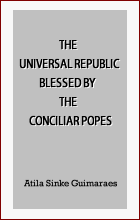
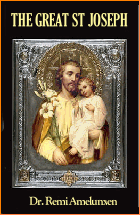
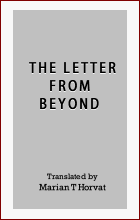



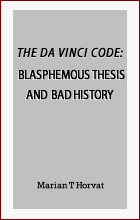
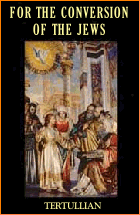
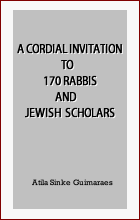
I believe that since the beginning of this so-called pandemic this is the most credible deposition I have watched / read on covid and the vaccine.
Dr. Vladimir Zelenko is a religious Jew who is the medical doctor of a colony of about 35,000 Jews living apart from the world somewhere in New York. He was one of the first physicians to come out with the hydroxychloroquine solution for covid-19. Today, he has more than 6,000 patients he had cured from this virus.
He was asked to answer questions on the topic posed by judges of a religious court of rabbis in Israel. As it is known, Israel has the highest percentage of vaccinated people in the world. So, here is a religious Jew speaking before a tribunal of religious Jews. He is obliged by his religion and his consideration for its authorities to tell the truth in order to help them.
His statements should be considered from this perspective.
What Dr. Zelenko tells the rabbinical court is that he is convinced that covid-19 as well as the vaccines that are being given to prevent it, are biological weapons used to produce a genocide. It is perhaps the greatest genocide in History, affirms Dr. Luc Montagnier, the French physician who discovered the HIV and won a Nobel Price. This genocide, according to Dr. Zelenko, could kill around 2 billion people.
So, in order to warn people about these vaccines, I urge you to watch this video and disseminate it as much as you can.
I thank you for the constant objective information TIA is offering to its readers during this bio-attack we have been suffering for 17 months.
Click on the picture below to watch.
E.J.